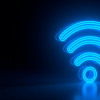Don't let your wireless network play host to strangers
Benjamin Smith III and Gregory Straszkiewicz both were arrested for allegedly stealing something no one could see, hear or feel. That thing was valuable enough for victims to press charges in both cases. But the arrests were over something many consumers throw out their windows every day: a Wi-Fi signal.
The idea of a police car roaring down the street to catch a roving Doom junkie using someone else's wireless LAN may seem silly, but there are real dangers if your network plays host to strangers. The hazards you might face include eavesdropping, theft of data, painful legal hassles or even a conviction for computer-related crimes. And if you casually tap into your neighbor's Wi-Fi sometimes, these arrests -- Smith was arrested in Florida and Straszkiewicz in Isleworth, U.K. -- signal that it's at least possible you might run afoul of a law and an irritated fellow citizen.
On April 21, Richard Dinon of St. Petersburg, Fla., called police after he saw Smith in a car on the street outside his house using a notebook computer. Smith, 40, was arrested and charged with a felony under a Florida law that prohibits unauthorized access to a computer or network, according to police. A pretrial hearing is set for Sept. 8. In July, a court in Isleworth convicted Straszkiewicz of using a laptop to access the Internet over unprotected residential WLANs on several occasions. He was fined $874 and got a 12-month conditional discharge.
A typical home Wi-Fi signal can transmit about 150 ft. from an access point or router. Walls and windows will slow it down, but if it reaches the edge of your property, it won't stop there. In densely populated areas, it's common for a Wi-Fi device such as a notebook to detect multiple residential networks from one place.









































































